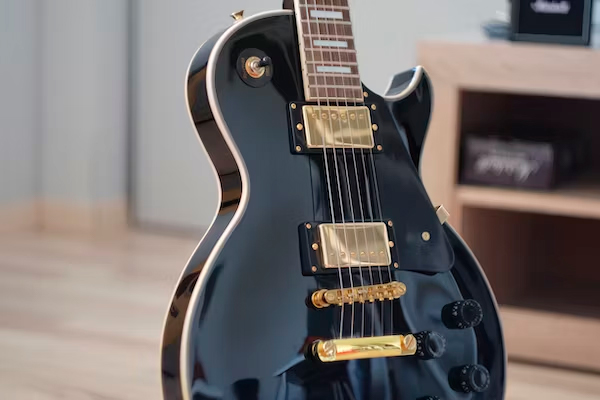
How to Stop the Hum: Are unwanted noises ruining your audio experience? Dive into our comprehensive guide to troubleshoot and eliminate hum and hiss in your speakers. Say goodbye to distractions and enjoy crystal-clear sound. Whether you’re a music enthusiast or content creator, these tips will enhance your listening pleasure. Let’s silence the hum together!
Table of Contents
What are Loudspeaker Hum and Hiss?
Hum and hiss are common audio disturbances that can negatively impact your listening experience. Hum is a low-frequency noise that often sounds like a constant buzz, while hiss is characterized by a high-frequency sound resembling static. These noises can be caused by a variety of factors, including ground loop noise, cable interference, inherent noise in the audio signal, improper wiring, or radio frequency interference.
Inherent Noise in the Audio Signal
Inherent noise in the audio signal refers to the noise that is present in the original audio source. This noise can be amplified or introduced during the transmission process, resulting in an audible hum. To reduce this type of noise, it is important to use high-quality audio cables and connectors that provide good shielding and minimize interference.
Why Does the Hum Happen?
Inherent noise in the audio signal, which is often introduced during the recording or amplification process, can contribute to hum and hiss issues, ground loop noise and cable interference can cause unwanted noise to manifest in your audio system. A ground loop occurs when there are multiple paths for electrical current, and this can happen if your audio equipment is not properly grounded or if different pieces of equipment are plugged into different power outlets. This occurs when there are multiple paths for electrical potential to the ground, causing a loop that creates interference and results in that annoying hum.
Additionally, improper wiring or unbalanced connections can also cause the hum to occur. The potential difference between these paths can cause noise issues. Another cause could be a faulty or poorly shielded cable. If the wire is used, try replacing it with a new one or ensuring that the existing wire works fine.
Another potential cause of loudspeaker hum is electromagnetic interference. This can happen when a device with a motor, such as a refrigerator or a fan, is placed too close to your audio equipment. The second method is to run your audio cables away from any sources of electromagnetic interference. Keep your cables away from power cords or other electronics that might introduce unwanted noise.
How Do You Get Rid of Hum?

Image by Bernie Almanzar from Unplash
Fortunately, there are several steps you can take to eliminate loudspeaker hum and hiss.
1. Break the Ground Loop to Eliminate the Hum
If you’re dealing with hum specifically from your amplifier, here are a few tips that might do the trick
Ground loop hum issues occur when there are multiple ground connections in your audio setup, creating a loop that causes interference. It typically occurs when one or more devices are plugged into different power outlets, causing a potential difference between them. To fix this, try the following methods:
- Use a ground lift switch or ground loop isolator. A ground lift is a device that isolates the audio component from the ground, effectively breaking the loop and eliminating the hum. This small device can be placed on the cables of your audio equipment and helps reduce electromagnetic interference that causes the hum.
- Separate your audio equipment into different AC outlets.
- Run a wire from the ground connection of one piece of gear to another.
- To break the ground loop and eliminate the hum, you can try using a ground lift or a ferrite bead, also known as a ferrite noise suppressor sleeve.
- Try using a ground loop isolator. This device can break the ground loop and eliminate hum caused by ground noise.
In addition to using a ground lift adapter, there are a few other methods to break the ground loop and remove hum:
- Separate your equipment: Try connecting each piece of equipment into a single power outlet. This can help eliminate ground loops caused by connecting multiple devices to different power sources.
- Use a USB re-transmitter: If you’re using a USB audio interface, consider using a USB re-transmitter that splits the shield connection. This can break the ground loop and remove hum.
- Use a ground wire rather than the cable’s shield: In some cases, using a separate ground wire instead of relying on the cable’s shield can effectively eliminate hum.
2. Address Cable Interference
Ensure that all your cables, including audio cables and power supply cords, are properly shielded and in good condition. Replace any damaged or low-quality cables that might be causing interference. Ensure that all wires and cables are securely connected. Loose connections can cause noise issues. If you notice any loose cables, simply a shunt them back in place and tighten any loose screws.
3. Remove the Noise from Inherent Noise in the Audio Signal
In some cases, the hum or hiss might be present in the audio signal itself. Use balanced audio cables (XLR or TRS) instead of unbalanced cables (RCA) to minimize noise issues. Balanced cables help reject interference by transmitting audio signals through two conductors and a shield.
4. Consider a Power Conditioner
A power conditioner can help eliminate electrical noise and stabilize voltage fluctuations, resulting in cleaner audio signals.
5. Use an audio cable with a three-prong plug
This helps to ground the audio device properly and reduce the chances of ground loop hum. If you’re dealing with hum specifically from your amplifier, here are a few tips that might do the trick:
Try using a ground loop isolator. This device can break the ground loop and eliminate hum caused by ground noise.
How to Stop the Hum on speakers?
1. Use a Ground Lift Switch:
Some audio devices, such as amplifiers or audio interfaces, may have a ground lift switch that can help break the ground loop and eliminate hum.
2. Use Ferrite Noise Suppressors:
Attach ferrite beads or ferrite noise suppressor sleeves to your cables to reduce interference caused by radio frequency signals.
3. Opt for Balanced Audio Cables:
Using balanced audio cables can help minimize hum and hiss by canceling out any electrical noise picked up along the cable’s length.
Sometimes, an unbalanced connector or a faulty mic cable can introduce unwanted noise into the signal chain. Make sure all your cables are properly connected and in good condition. If you suspect a faulty cable, try replacing it with a new one to see if that resolves the issue. A balanced connection, typically achieved using XLR cables, cancels out any noise picked up via electromagnetic induction.
4. Check your power connections:
Ensure that all your equipment is properly plugged into a grounded outlet or power strip. Uninterruptible power supplies can also help eliminate potential ground-related issues.
5. Separate audio and power cables:
Keep your audio cables away from power cables to minimize any interference that can cause the hum.
6. Use balanced connections:
If possible, use audio cables with balanced connections, as they are less susceptible to noise and interference.
7. Check your speaker placement:
Sometimes, the hum can be caused by electromagnetic interference from nearby electronic devices. Try repositioning your speakers away from devices with motors or other potential sources of interference.
8. Check speaker connections:
Ensure that the speaker cables are securely plugged into the correct output terminals.
9. Check power amplifier grounding:
Check if the power amplifier is properly grounded. A solid ground connection can help reduce noise issues.
10. Use a hum eliminator device:
Consider using a hum eliminator device, such as the Ebtech Hum X, which isolates the ground and eliminates hum.
If the hum persists, you might have thought about using a power conditioner or surge protector. These devices can help filter out unwanted noise and provide clean power to your speakers, reducing the chances of a hum occurring.
Tips

Image by Natalie Parham from Unplash
- If you’re using a USB audio interface, try a USB noise filter to reduce frequency noise that may cause hum.
- Keep audio devices with motors separate from sensitive audio equipment to avoid interference.
- Run audio and video cables separately to minimize signal interference.
- Consider using wireless or Bluetooth audio transmission to eliminate the need for physical cables.
- If using a turntable, ensure that the ground wire is properly connected to minimize hum.
- Keep your amplifier away from other devices that generate electrical noise, such as hair dryers, fluorescent lights, or equipment with motors.
- Buzz or hum can be fixed by separating power and audio cables, fixing audio cable shielding, and using quality power conditioners on all audio electronics.
In some cases, loudspeaker hum cannot be eliminated, especially if it’s caused by inherent noise in the audio signal itself. However, there are still steps you can take to minimize the hum and make it less noticeable. One option is to use a noise gate or a noise reduction plugin to suppress the hum when there’s no audio signal present.
Warnings
- When dealing with electrical connections, it’s always best to consult a qualified electrician if you’re unsure about proper grounding techniques.
- Removing the ground connection from your equipment should only be done as a last resort and with caution.
- Note that even with the best troubleshooting methods, some hum or hiss may still be present due to the nature of the audio equipment and wiring.
Conclusion
Loudspeaker hum and hiss can be frustrating, but with the right troubleshooting methods, you can minimize or even eliminate the problem. Using the above basic methodologies, you should now be able to eliminate all the unwanted noise in your audio system, as well as some you might have thought was inherent.
Understanding the causes of hum and hiss, allows using proper wiring techniques. Don’t let hum and hiss ruin your audio experience any longer. By following these tips and troubleshooting methods, you can significantly reduce and even eliminate the ground loop noise and interference causing hum and hiss in your audio system. Remember to use high-quality cables, address ground loop issues, and consider using power conditioners or isolation transformers.






